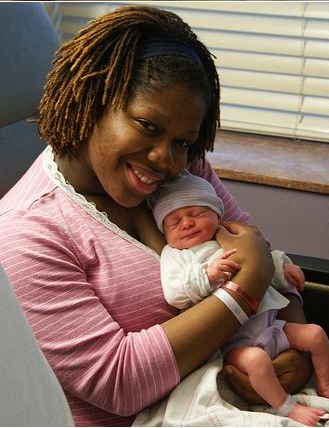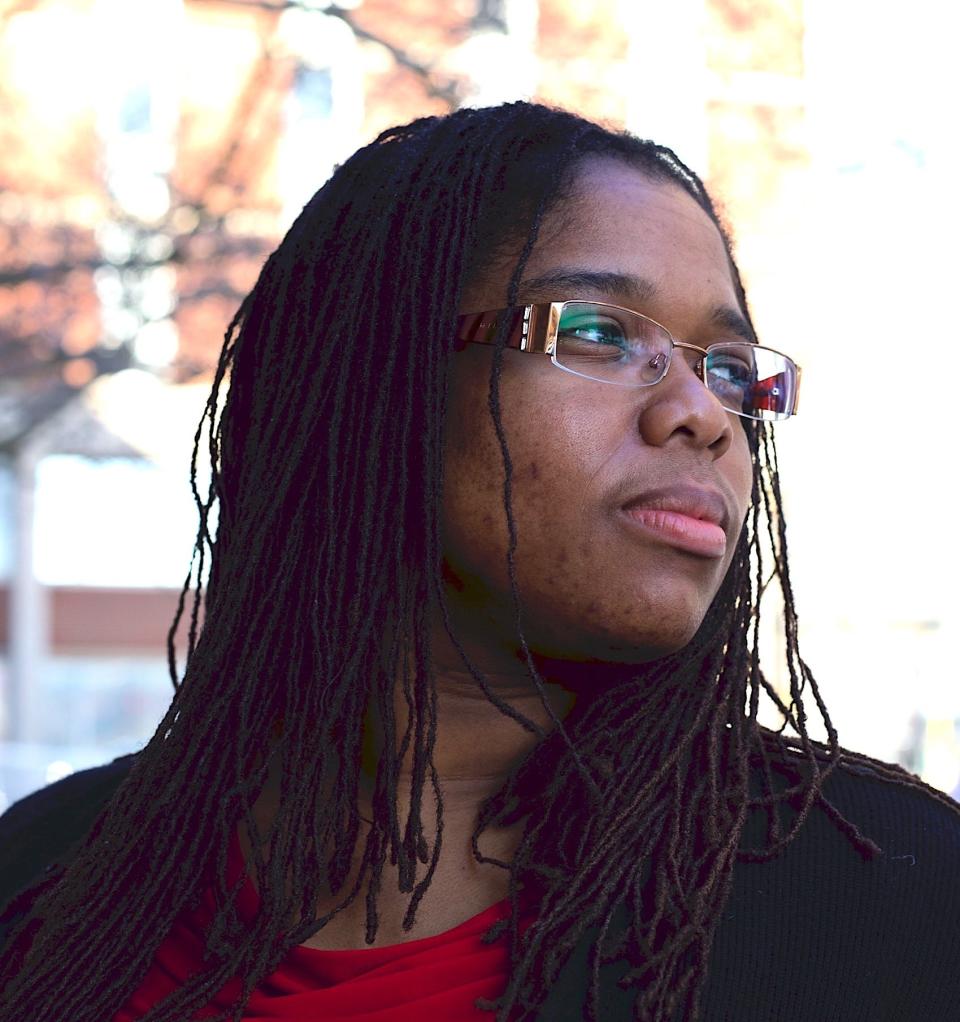I became a doctor as a single Black mom. The 'pro-life' movement didn't help me.
Today, I am an African American woman descended from enslaved persons, who became a physician and faculty at Yale University. Most important, I am “Mom," a fiercely proud single Black mother raising the world’s most amazing daughters.
In 2008, I was just Carmen – a college graduate with dreams of becoming a physician who was petrified at the sight of a little blue plus sign on a home pregnancy test. Worse, I knew that there would be no paternal support.
I vividly remember how, as I contemplated the meaning of that little blue plus sign, I lingered at the kitchen table staring blankly at the phone book. As I nervously flipped the yellow pages to adoption agencies, I first came across a different option: abortion.

Why I couldn't choose abortion
Abortion was not the option most consistent with my values, but as an aspiring physician, I did not want to become the next statistic of a Black woman who failed to reach her full career and income potential due to family obligations.
As I understood it, single Black moms were not supposed to become doctors.
My mother and grandmother admitted that they, too, had never seen a solo parent in medical school. But they promised that if any family could pull off the unusual feat, it would be ours. After all, I am the paternal granddaughter of two Black Ph.D.s and the maternal granddaughter of a schoolteacher who taught in still-segregated Georgia grade schools.
Moreover, I am the daughter of two Black physicians who both attended the Medical College of Georgia before me, though family deaths left me to be raised by my maternal grandmother and mother.
And so, with them by my side, I accepted the unplanned call to motherhood.
Life without Roe: I mourn the future of women and unwanted babies, who will be ignored by those who 'saved' them
Despite our best intentions, my “pro-life” choices were obstructed every step of the way by elitist, nonsensical and racist structures.

My mother and grandmother ensured I was privately insured throughout college, so I called my insurer to find prenatal care. But they told me I had the wrong plan to cover my pregnancy.
I could switch to a plan that did cover prenatal care, I was told, for about an extra $100 per month. I cringed at the absurdity of being told that my seemingly desirable insurance did not cover basic health care necessities. After I diligently enrolled in the pricier plan, I was told that my pregnancy was still not covered.
Now, they said, I had a “preexisting medical condition” and would need to have that pricier plan for 12 months before prenatal care could be covered.
I panicked. Although my mother was a primary care physician, she could not pay health care costs of pregnancy in cash without insurance. Furthermore, such extreme costs should not have been required by my quest for success.

I was only able to afford prenatal care by finding a loophole to qualify for Georgia Medicaid as a college student without income. Even with the extensive family support, I accrued over $225,000 in student loans to afford medical school tuition alongside day care, food and clothing expenses, which has ballooned to over $300,000 over the last seven years of payments.
The future of abortion: Here's what happens to a victimized child when the singular focus is on saving babies
My experience taught me that the anti-abortion movement at work in recent decades certainly leaves out helping single parents afford child care and educational expenses to better ourselves or our children after birth.
Moreover, my pursuit of medicine as a Black woman was made evermore difficult due to societal racism and anti-Black bias embedded in medical education – not to mention the maternal health crisis in America that disproportionately kills Black mothers, making pregnancy and childbirth a terrifying experiences for us.
No consensus among religions: No room for religious liberty in abortion debate? Since when are we a one-faith nation?
To be clear – my choices are my own, and I seek no sympathy for the educational debt necessary to achieve my goals while embracing my identity as a proud solo mother to the world’s most phenomenal teenager.
I am living proof that it is absolutely possible, albeit much harder, for single parents to achieve our full professional and personal aptitude.
My experience should not be the norm
Nonetheless, many would gloss over the challenges I faced to “normalize” my example to shame others who do not elect to answer the call to unplanned parenthood, or who lack the resources to do so.
I ask the staunchest anti-abortion advocates: Where are your efforts to support Black single parents who might wish to keep their unplanned pregnancy, yet need more support from society than racialized inequity at every turn?
To America, I say: Not one single step of my journey benefitted from the “advocacy” of most so-called pro-lifers, who are often the first to criticize any Black family on government assistance while staying silent on the need to dismantle structural racism.
And for these reasons, although I could never imagine a life without motherhood exactly the way I have chosen to embrace it, I fully support anyone’s right to choose – or not choose – embarking on parenthood in this broken society.

Being a third-generation doctoral degree holder cannot be the threshold for an American descendant of slavery to survive America’s endlessly unsupportive structural barriers that do anything but protect children and their families.
Carmen Black, MD, is assistant professor and the director of the Social Justice and Health Equity curriculum for Yale Department of Psychiatry.
You can read diverse opinions from our Board of Contributors and other writers on the Opinion front page, on Twitter @usatodayopinion and in our daily Opinion newsletter. To respond to a column, submit a comment to letters@usatoday.com.
This article originally appeared on USA TODAY: I'm a Black single mother. The 'pro-life' movement didn't support me

 Yahoo Movies
Yahoo Movies 
